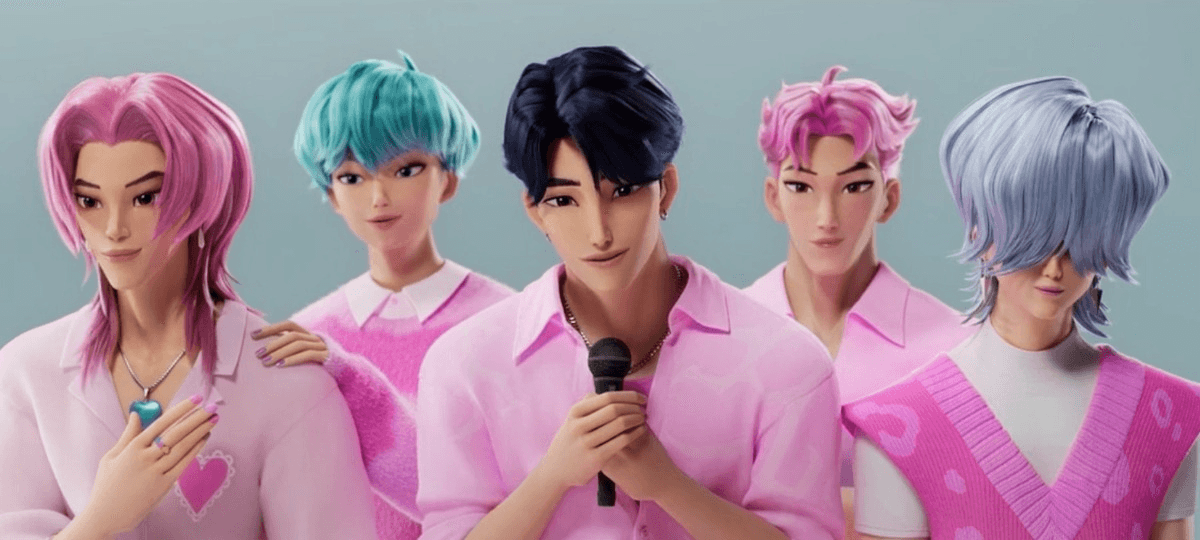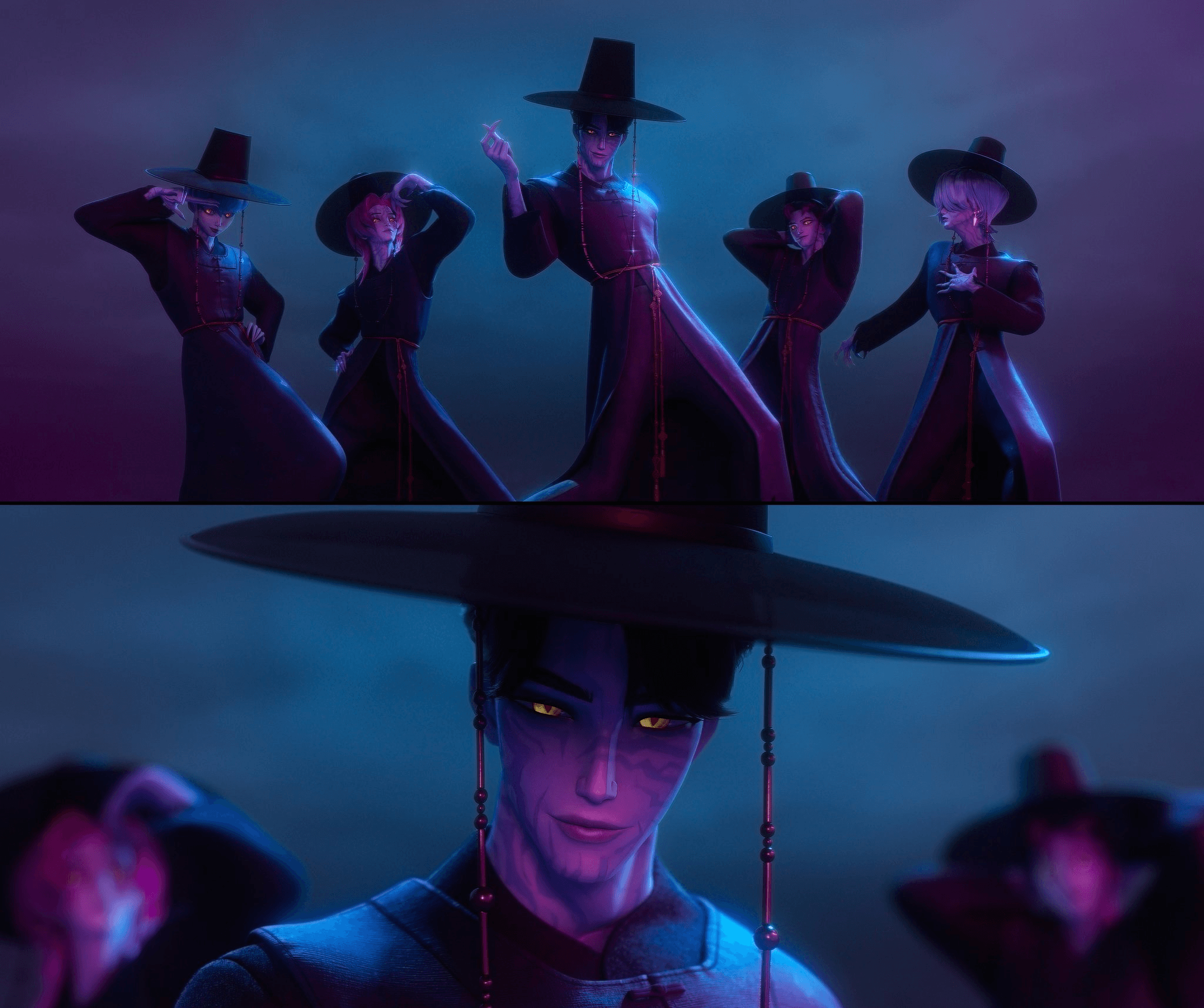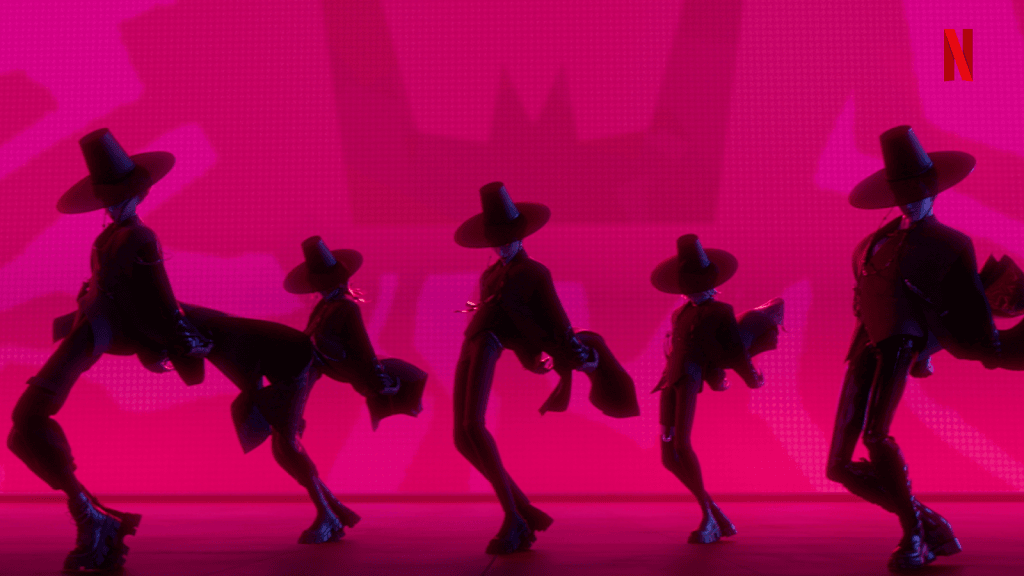What does saja boys mean?
If you've been watching Netflix's "K-Pop Demon Hunters," you've probably fallen for the villain boy group Saja Boys just like everyone else. But have you ever wondered what their name actually means? There's way more to it than meets the eye.

What Are Saja Boys?
Saja Boys are the antagonist K-pop group in Netflix's animated film "K-Pop Demon Hunters." They're a five-member boy band that appears to be your typical charming idol group, complete with perfect visuals, killer dance moves, and devoted fans. But here's the twist: they're actually Korean death messengers (저승사자) in disguise, sent to steal human souls.
The group consists of five members:
- Jinu (Leader) - Charismatic and manipulative
- Abby - The muscle with killer abs
- Baby - Pretty face with a surprisingly deep rap voice
- Mystery - The enigmatic one with hidden features
- Romance - Pink-haired visual center
While they perform flawlessly on stage and charm fans during meet-and-greets, behind the scenes they coldly discard fan gifts and reveal their true supernatural nature.

The Clever Korean Wordplay
Here's where it gets interesting. The name "Saja Boys" isn't just a random choice - it's a brilliant example of Korean wordplay that works on multiple levels.
In Korean, "사자 (saja)" can mean three completely different things:
- 사자 (獅子) = Lion
- 사자 (使者) = Messenger
- 사자 (死者) = Dead person/The deceased
These words sound exactly the same but are written with different Chinese characters and have totally different meanings. This is called a homophone - words that sound identical but mean different things.
The Surface Meaning: On the surface, "Saja Boys" appears to reference lions, which fits their fierce stage presence and lion logo. Lions symbolize power, dominance, and charisma - perfect for a successful K-pop group.
The Hidden Meaning: But the real meaning refers to "messengers" - specifically, death messengers from Korean mythology. This reveals their true identity as supernatural beings whose job is to guide souls to the afterlife.
The Darkest Layer: There's also a third interpretation - "사자 (死者)" meaning "the dead" or "deceased persons." This adds another sinister dimension, as they could represent not just messengers of death, but the dead themselves, or those who bring death to others.
Why This Name Choice Is Genius
The creators likely chose this name for several strategic reasons:
Triple-Layer Wordplay: The creators likely chose this name because it works on three levels - innocent (lions), supernatural (messengers), and ominous (the dead). This creates an incredibly rich name that gets darker the more you understand it.
Cultural Authenticity: It roots the characters in genuine Korean folklore rather than generic Western ideas about death and demons. Korean death messengers have specific characteristics that make them perfect for this story.
Perfect Disguise: Just like the characters themselves, the name has a innocent surface meaning (cute lion-themed boy band) that hides progressively darker truths (death messengers, or even the dead themselves).
Memorable Wordplay: Korean audiences would immediately catch all three meanings, while international audiences would initially only see the lion reference, creating multiple layers of understanding that reveal themselves over time.
Fan Engagement: The fandom name "Pride" (a group of lions) plays perfectly into the lion theme while hiding the supernatural messenger aspect.
Korean Death Messengers: The Cultural Background
To understand why this works so well, you need to know about Korean death messengers (저승사자 or Jeoseung Saja). Unlike the scary Western Grim Reaper, Korean death messengers have unique characteristics:
- They follow strict rules and only take people whose time is truly up
- They can be negotiated with - Korean folklore is full of stories about people bribing them with food or bargaining for more time
- They're more like supernatural civil servants than terrifying demons
- They often appear in human form and can blend into society
These traits make them perfect for the K-pop idol disguise concept.

Why This Concept Works So Well
The creators probably chose this approach because:
Cultural Bridge: It introduces international audiences to Korean mythology in an accessible way through familiar K-pop culture.
Social Commentary: K-pop idols already live double lives (public persona vs. private reality), so making them literal supernatural beings with hidden identities amplifies this existing theme.
Visual Appeal: Death messengers in traditional Korean depictions wear black robes and hats, but putting them in colorful stage outfits creates a striking visual contrast.
Relatability: Korean culture has long connected entertainment with spirituality - there's even an old saying that "a shaman's fate is like an entertainer's fate."
"Saja Boys" represents more than just a clever name - it's an example of how Korean creators are finding innovative ways to share their cultural heritage with global audiences. Instead of explaining Korean mythology through documentaries or history lessons, they're embedding it into entertainment that people already love.
The name works because it respects the intelligence of both Korean and international audiences. Korean viewers get the full cultural reference immediately, while international viewers can discover the deeper meaning as they become more invested in the story.
Part of the Saja Boys' appeal comes from this layered meaning. They're not just generic villains - they're rooted in centuries of Korean storytelling tradition while being completely modern in their presentation. The name itself tells you everything you need to know about Korean culture's approach to mythology: it's not ancient history, it's a living tradition that can be reinterpreted for new generations.
So the next time someone asks "What does Saja Boys mean?" you can tell them it's the most obvious and most hidden thing about these viral K-pop villains. They're lions on the surface, death messengers in the middle, potentially the dead themselves at the deepest level, and pure genius all around. The name gets more chilling the more you think about it - just like the characters themselves.